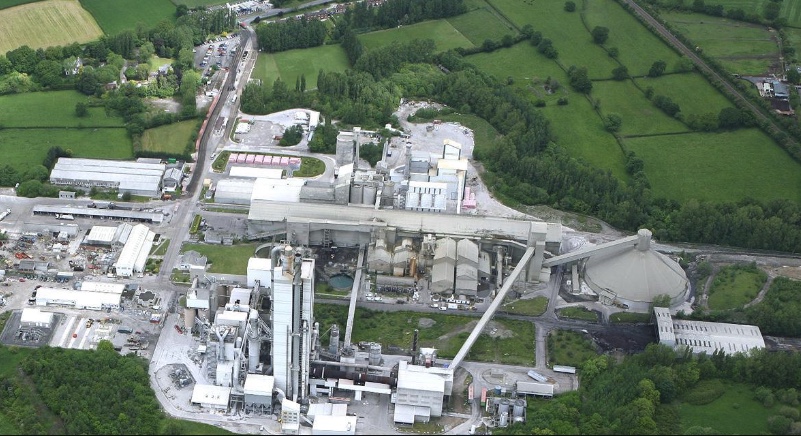Flintshire cement works to pump 800,000 tonnes of carbon dioxide out to sea

Flintshire is on track to become a global leader in net-zero cement production, driven by a £400 million carbon capture and storage project at a cement works.
The ambitious initiative has been acknowledged by Greenpeace as a necessary measure for cement production, despite reservations about carbon capture and storage technology.
The planned facility by cement company Hanson at Padeswood will pipe 800,000 tonnes of carbon dioxide (CO2) a year out to sea.
Part of the broader HyNet project, it will see CO2 captured from companies in north-west England and north Wales, and then secured in depleted gas fields beneath the Liverpool Bay seabed.
While the environmental group Greenpeace accepts that this technology may be indispensable for cement production, its policy director, Doug Parr, warns about its complexity and high costs.
Speaking to BBC Wales News, Mr Parr stated: “What we know about carbon capture and storage where it’s been used globally is that it’s expensive and it’s difficult to make work. However, it’s also true that in certain instances, like cement, it’s very difficult to deal with it in any other way. In those circumstances, it probably is going to be necessary.”
This significant project is met with both anticipation and scrutiny.
Marian Garfield, Hanson’s director of sustainability, has stressed the UK’s dependency on carbon-neutral building materials to reach its net-zero goals, saying, “The announcement by the government is a good, positive sign.”
However, Mr. Parr further fears that the fossil fuel industry may misuse carbon capture as a smokescreen to continue “business as usual.”
Presently, carbon emissions from Padeswood are released through a 110m stack.
Under the new plans, the carbon would be captured in a facility roughly the size of seven football pitches.
The project not only aims to preserve 222 existing jobs but also intends to create 54 full-time positions.
The project, funded by parent company Heidelberg Materials, is still under negotiation with the UK government regarding payment for the captured carbon.
If approved, it would be tantamount to taking 320,000 cars off the road, with the potential to become operational by 2027, reports BBC News Wales.
Planning permission and environmental permits will need to be secured and public consultation on the project is yet to take place.
The success or failure of this project could set a precedent for the role of carbon capture in the UK’s journey towards a greener future.
Spotted something? Got a story? Email: [email protected]
Latest News
